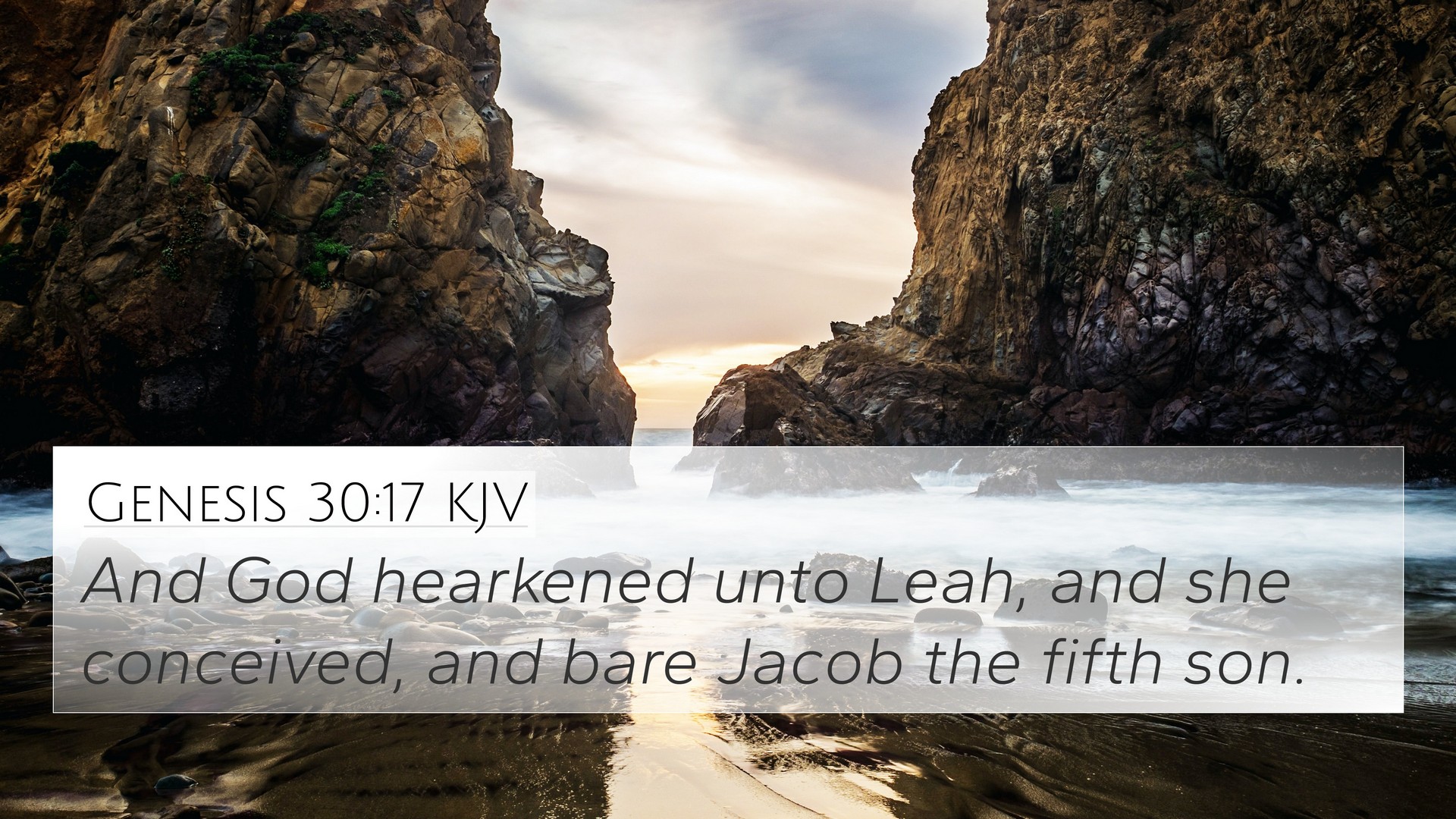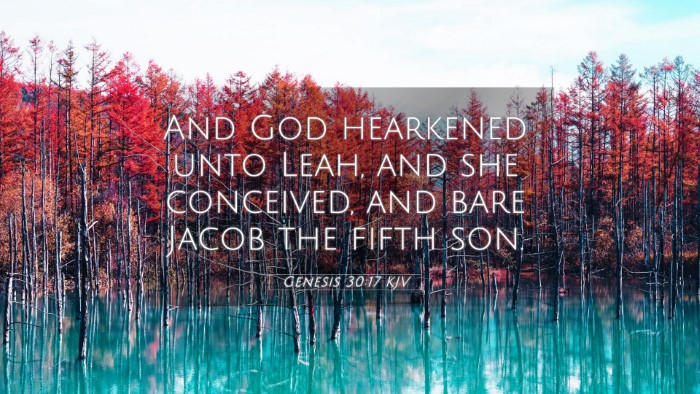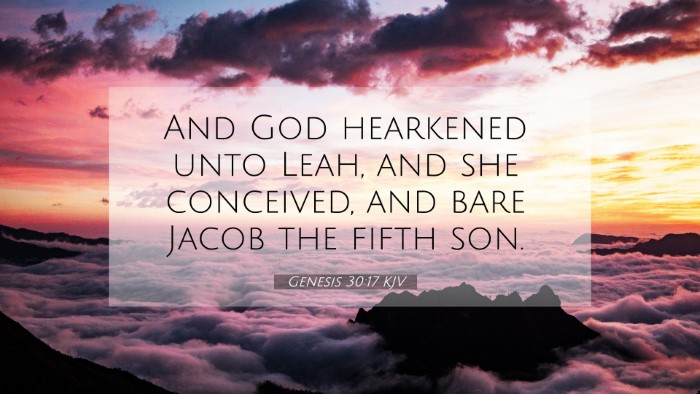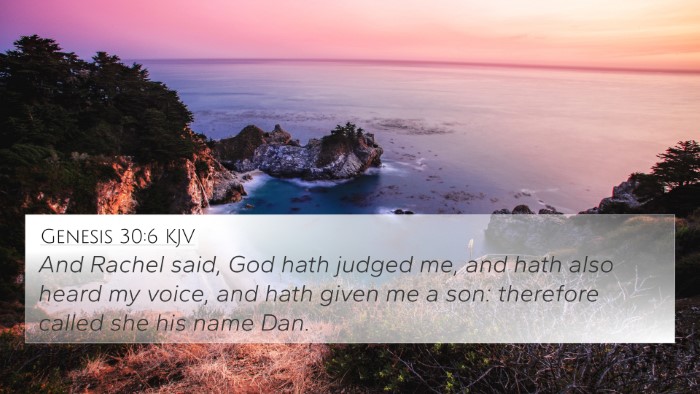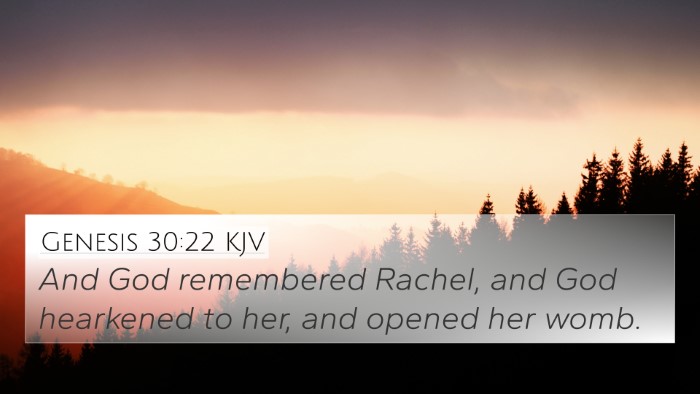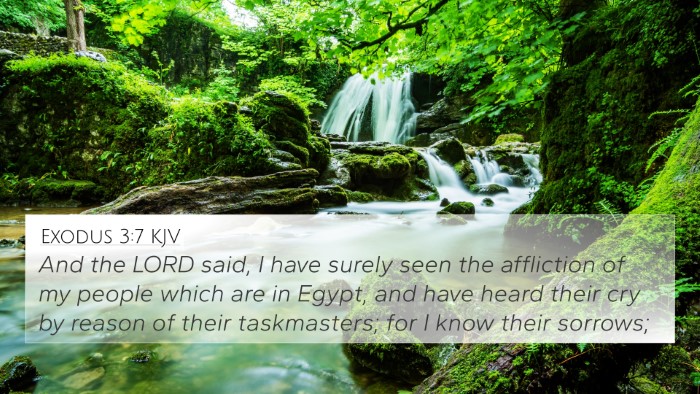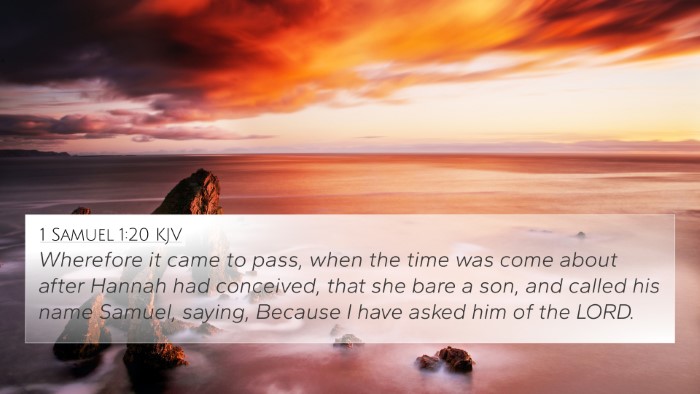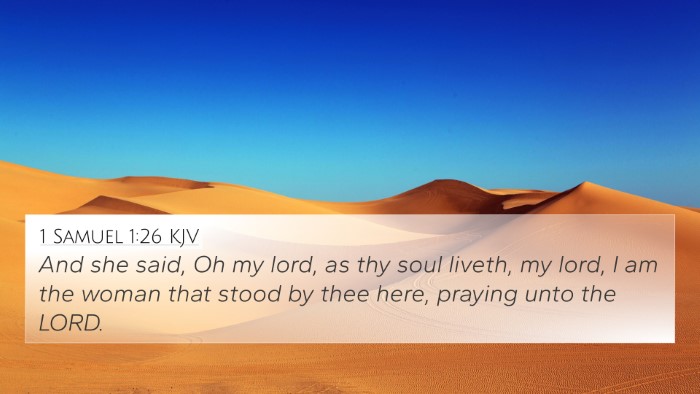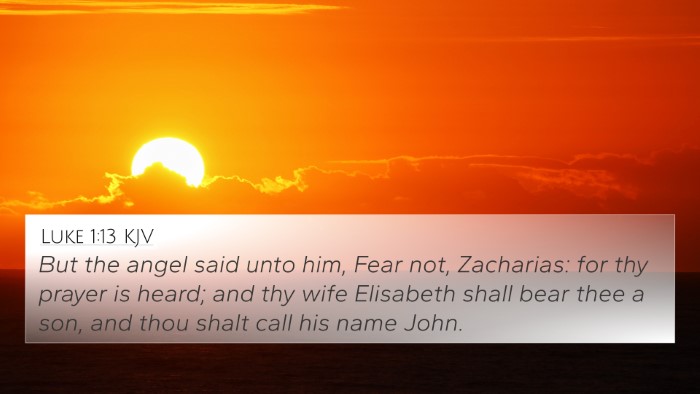Understanding Genesis 30:17
Genesis 30:17 states, "And God hearkened unto Leah, and she conceived, and bare Jacob the fifth son." This verse is a pivotal moment in the narrative of Leah and Jacob, revealing the complexities of their relationship and the broader themes of divine intervention and human struggle.
Summary of the Verse
In this passage, we see God's responsiveness to Leah's prayers, highlighting the recurring biblical theme that God listens to the cries of His people. Leah, previously overshadowed by her sister Rachel, experiences God's favor as she bears another child. This underscores the transformative aspect of faith and divine providence in human affairs.
Commentary Insights
Insights from renowned biblical commentators reveal a rich tapestry of interpretations surrounding Genesis 30:17.
-
Matthew Henry:
Henry emphasizes God's role as an attentive listener who grants Leah's request, celebrating her faithfulness despite her struggles. He notes that the birth of her fifth son symbolizes both personal fulfillment and a continuation of God's promises to Abraham.
-
Albert Barnes:
Barnes discusses the personal and familial implications of Leah's childbirth, suggesting that it reflects the broader narrative of God's covenant with Israel. He highlights the significance of each child born to Jacob as integral to the lineage of God's chosen people.
-
Adam Clarke:
Clarke offers a detailed analysis of the cultural context, explaining how Leah's struggle for Jacob's affection mirrors larger themes of rivalry and desire for status within the family structure. He interprets Leah’s subsequent childbearing as a means of seeking love and recognition.
Thematic Connections
This verse connects to several significant themes and other biblical passages:
- Divine Intervention: God's interaction with individuals in their time of need is a recurring theme throughout the Bible.
- Favor and Fidelity: Leah's faithfulness is rewarded, reminding believers of God's justice and grace.
- Family Dynamics: The rivalry between Leah and Rachel sets the stage for explores human relationships and God's plans unfolding through family struggles.
Bible Verse Cross-References
Genesis 30:17 has notable connections with the following verses:
- 1 Samuel 1:20 - God listening to Hannah's plea for a son.
- Psalm 34:17 - The Lord hears the cries of the righteous.
- Genesis 29:31 - God noticing Leah's unloved status.
- Genesis 30:9 - Rachel's desperation leading to her own struggles.
- Genesis 49:3 - The significance of Jacob’s sons in biblical history.
- Isaiah 65:24 - God's promise to answer before we call.
- Hebrews 11:30 - The faith of the patriarchs symbolizing their belief in God's promises.
Understanding Cross-Referencing Biblical Texts
Exploring the connections between Bible verses enhances our understanding of Scripture. Here are some tools and methods to help in cross-referencing:
Tools for Bible Cross-Referencing
- Bible Concordance: A valuable resource to locate related verses.
- Bible Cross-Reference Guide: A guide that presents scripture parallels systematically.
- Cross-Reference Bible Study: Methodologies for deep-diving into thematic studies.
How to Use Bible Cross-References
To effectively use cross-references:
- Identify key themes in the verse you are studying.
- Utilize a biblical concordance or reference guide to find related scriptures.
- Engage in comparative analysis of verses from different biblical texts.
- Compile insights into thematic studies for deeper understanding.
Conclusion
Genesis 30:17 not only reflects Leah's personal journey but also serves as a profound reminder of God's attentiveness to the desires of His people. By engaging in cross-referencing with other related verses, one can unravel deeper meanings and make significant connections within the scripture, promoting a holistic understanding of biblical themes.
